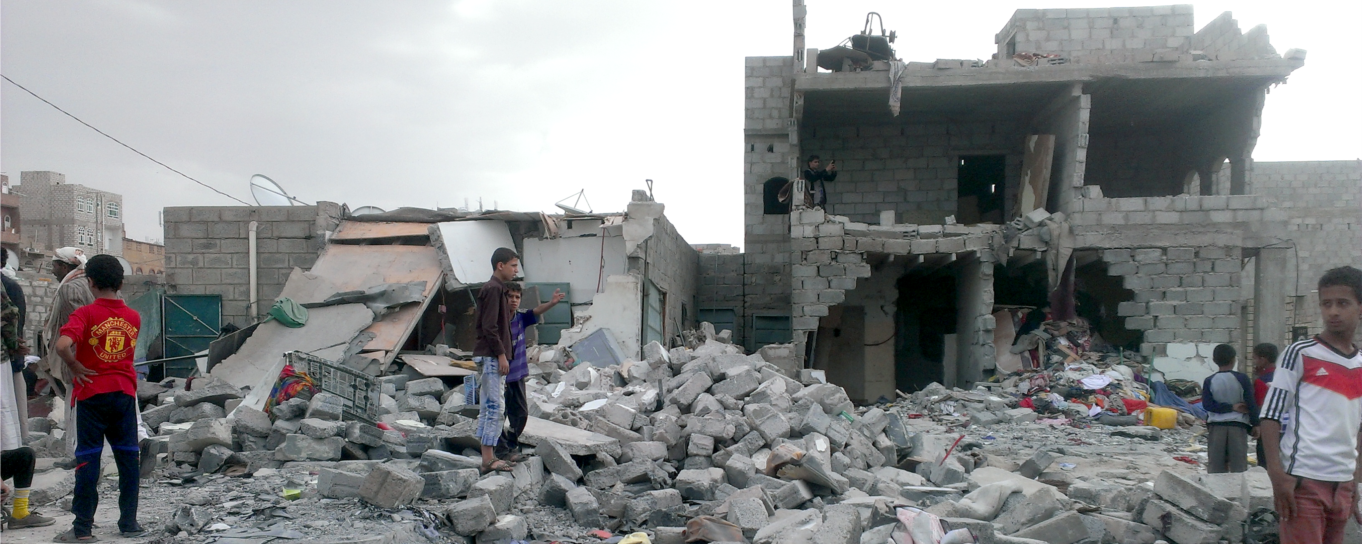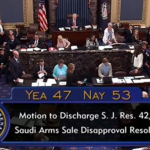Let's End U.S. Complicity in Yemen's Humanitarian Crisis
This piece was originally published in the East Bay Times.
By The Rt. Rev. Marc Andrus and Jon Rainwater
If you were to make a list of the countries least deserving of the largest arms deal in American history, the Kingdom of Saudi Arabia, with its appalling human-rights record, would likely be near the top. Yet that is precisely the country to which President Donald Trump extended an offer of a projected $110 billion arms deal.
For more than two years the U.S. has been morally and politically complicit in atrocities committed in Yemen’s civil war at the hands of a Saudi-led military coalition. In a breathtakingly values-free calculus, some U.S. leaders saw support for the Saudi intervention as part of shoring up ties with the Kingdom after the Iran nuclear agreement strained the U.S.-Saudi relationship.
Since then, the U.S. military has played a key role in facilitating the campaign, providing intelligence and logistical support including identifying targets, participating in a naval blockade, and conducting mid-air refueling of coalition planes — actions for which, as taxpaying Americans, we bear some inherent responsibility.
Human rights groups report that Yemen’s schools, marketplaces, mosques, and hospitals have all fallen victim. The Saudi coalition has demonstrated a habitual, if not deliberate, failure to differentiate between military and civilian targets.
On top of the thousands of civilian deaths caused by coalition strikes, the coalition’s naval blockade paired with the destruction of roads, bridges, and hospitals has choked the country’s access to food and medical supplies.
In April, the United Nations estimated that 21 million Yemenis are in need of humanitarian aid, and 7 million people — roughly the same size population as the San Francisco Bay Area — are near starvation.
In late May, the United Nations’ head of humanitarian affairs Stephen O’Brien announced that “Yemen now has the ignominy of being the world’s largest food security crisis.” To make matters worse, widespread malnutrition and a lack of access to proper medical care have lead to a recent outbreak of cholera, a preventable disease in normal circumstances, that’s killed roughly 800 and infected more than 100,000 Yemenis.
This crisis has reached a dramatic turning point and compassionate Americans must respond. The coalition is reportedly preparing an offensive on the port city of Hodeida, through which roughly 80 percent of the country’s food and humanitarian aid makes port.
The U.N., humanitarian groups, and recently a growing number of legislators, have warned the offensive would plunge the country deeper into famine. The U.N. has also said any assault on Hodeida would send at least 400,000 people into flight, adding to the refugees who Trump wants to deny safe harbor.
Instead of handing the Saudi government the political and material support it needs to continue indiscriminately bombing Yemen with impunity, the U.S. should focus on facilitating a diplomatic solution to end the fighting and leading a robust humanitarian effort.
Pending a negotiated settlement, perhaps the most powerful way to send a message to the Saudi-led coalition that civilian lives must be protected is for Congress to immediately cut off the arms fueling the conflict.
Thankfully, Sens. Rand Paul, R-Kentucky, Chris Murphy, D-Connecticut, and Al Franken, D-Minnesota, have introduced a joint resolution that will allow them to force a vote in the Senate on whether to block a key component of Trump’s monstrous arms deal: the sale of precision-guided munitions that have been used in Yemen to such devastating effect.
California’s senators have yet to take public positions on this bill. They need to hear from their constituents.
The Rev. Marc Handley Andrus is the Episcopal bishop of California. He oversees a diocese of 27,000 communicants in the Bay Area. Jon Rainwater is executive director of Peace Action and Peace Action Education Fund.





